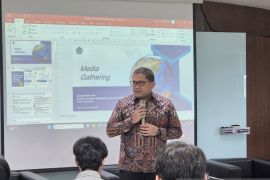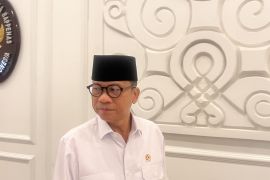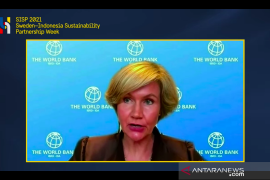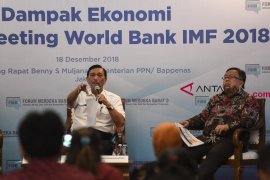"Due to the inconducive external conditions, economic growth is expected to decline to 5.1 percent in 2019," World Bank Chief Economist in Indonesia, Frederico Gil Sander, stated in his presentation at the launch of the event on the June 2019 edition of the Indonesia Economic Quarterly report in Jakarta, Monday.
This figure, based on the gross domestic product (GDP) record, shows a decrease of 0.1 percent as compared to the GDP of 5.2 percent in 2018.
In 2020, economic growth is expected to recover, or rise 0.1 percent, to reach 5.2 percent.
Sander further noted that the moderate acceleration in private consumption is expected to continue, while inflation is still low, and the labor market remains strong.
In the meantime, the fiscal position is also expected to strengthen, thereby enabling the government to increase investment in several infrastructure projects and restart reconstruction efforts after the disaster.
Despite slowing down, investment growth is expected to continue to strengthen, particularly after the election period, and uncertainty over the political situation also allaying, while business sentiment towards the government's proposed reform program is increasingly optimistic, he stated.
In the midst of an unfavorable global situation, export growth is projected to weaken.
Import growth too is expected to weaken in line with the slowing investment growth.
In the meantime, government policies to restrict imports are expected to continue to be enforced.
Taking into account a decline in the value of exports and imports, the external sector will contribute moderately to the growth of total revenues in 2019 and the coming year. Related news: Indonesia's economic growth remains robust
EDITED BY INE
Translator: Katriana/Eliswan Azly
Editor: Suharto
Copyright © ANTARA 2019












